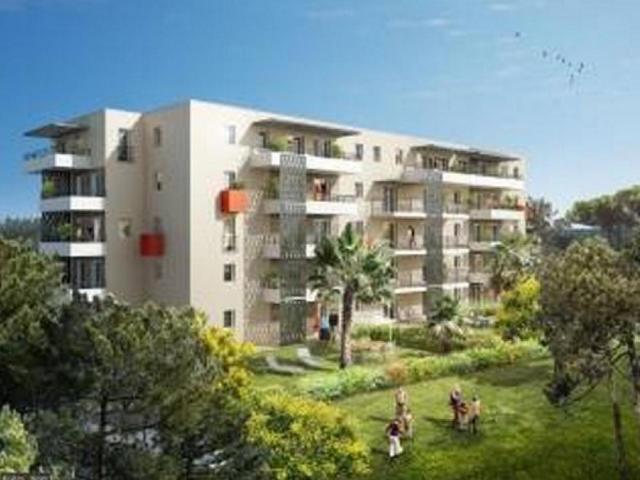Апартаменты во Франции
Продажа апартаментов
Многие клиенты спрашивают, имеет ли смысл купить апартаменты во Франции, чтобы получить Вид на жительство. Должны Вас сразу разочаровать. Идея блестящая, но во Франции нет такого закона, как в Латвии, в Турции и на Кипре. Похожий закон готовится к принятию в Испании, Греции, но во Франции его не будет никогда. Почему? Потому что рынок недвижимости Франции не испытывает кризиса. Почти совсем. Цены на Лазурном Берегу, на горнолыжных курортах и в регионе Парижа продолжают демонстрировать не только редкую стабильность, но даже показывают незначительную тенденцию к росту. Падение цен наблюдалось лишь в центральных районах, в Нормандии, Эльзасе. Нам попадались дома за 150-180 тыс. евро в окрестностях Руана. А в остальном, прекрасная маркиза это экономика категории ААА, то есть наивысшего уровня стабильности.
Как купить апартаменты
Покупка сама по себе является заметным преимуществом и даже необходимым условием как подтверждение наличия места для проживания, но этого отнюдь не достаточно для полноценного вида на жительство как права находиться во Франции 365 дней в году. Покупая недвижимость во Франции, Вы должны понимать, что Вам дадут многократную визу на год, два или даже три года с правом пребывания в стране 180 дней в году. Остальное время Вы должны находиться в России или где-то еще. Это в общем-то общеевропейское, «общешенгенское» правило. Если речь идет только о цели получения Вида на жительство, то апартаменты во Франции Вам не подойдут. Он скорее подходит студентам, ведь высшее образование во Франции бесплатно, в том числе и для иностранных студентов. Требуется только отлично сдать экзамены, чтобы попасть в заветную квоту. Если студент окажется обеспечен работой уже до окончания срока обучения, то он сможет претендовать на Вид на жительство уже не студенческой категории, а затем и на гражданство. Но надо сперва с чего-то начать. Пусть началом станет приобретение апартаментов Франции. Обратите внимание в первую очередь на окрестности Ниццы, район Софии Антиполис, где сейчас растет и крепнет Силиконовая долина Европы на базе университета Ниццы... Может, это и есть Ваш шанс... или шанс Ваших детей. Если Ваши дети обоснуются во Франции, Вы сможете получить визу со статусом «гость» или долгосрочную визу для изучения языка, а он непростой и его изучение может длиться весьма долго.
Покупка апартаментов во Франции - отзывы клиентов
Дмитрий и Галина Куликовы (Тюмень): Выбирая между несколькими странами — Испанией, Италией, Францией — сделали выбор в пользу Франции. Может, потому что в школе изучала французский язык. Так получилось, что первая поездка за границу в 1994 году была тоже во Францию. Тогда нам казалось, что апартаменты по Франции — это далекая несбыточная мечта, что-то из сказки. Прошло 20 лет — и оказалось, что мечта вполне реализуемая и сказка может стать былью. Париж показался нам дорогим, решили поехать на юг — и там цены нас приятно обрадовали. Оказалось, что новые апартаменты во Франции на 2 спальни можно спокойно купит за 300 000 евро, а можно и дешевле. Конечно, можно и дороже, от места зависит. Но данная сумма была вполне подъемной. Купили осенью новостройку на стадии трех этажей из шести. В июне уже жили в своих новых апартаментах во Франции. Мы все боялись, что к лету не сдадут. Но как было указано — первый триместр 2014 года, так в конце марта все и было сдано. Мебель заранее обговорили по типовым каталогам с тем же застройщиком. Въехали во все готовое.
Григорий Николаевич (Самара): Я всегда был противником заграницы. Немолодой человек. Так воспитан. Всю жизнь тянул лямку офицера. Вышел в отставку. Пошел работать в службу безопасносности банка. Люблю, чтобы все было ясно, четко, вовремя. Был в Италии — там принято опаздывать. Приходить вовремя у них неприлично. Нормальное опоздание от 15 минут и больше. Даже поезда опаздывают. Один на 70 минут опоздал. Это неприемлемо. От Италии отказались. Франция приятно отличается. Риэлтор приехал в назначенное время. Показал десяток-полтора апартаментов во Франции. Это было на Лазурном Берегу. Ницца, Канны. По сделке все было понятно и прозрачно. Всем остался доволен. А угодить мне непросто. Апартаменты во Франции строят качественно. Новые квартиры на Лазурном берегу однозначно стоят своих денег. Хорошие планировки. Много света. Я смотрел несколько вторичных апартаментов в Каннах, Теуле. Но жена выбрала новые. Волевым командирским решением. Так я стал сторонником заграницы, вернее Франции.
Супруги Василевич (Казахстан): Мы любим французскую горнолыжку, и нам уже даже французы дают двухгодичные мультивизы. Решили совместить полезное с приятным и сделать доходное вложение во Франции. В районе горнолыжных курортов от региона Анси-Шамбери и далее до итальянской границы есть много туристических комплексов гостиничного типа, где можно купить апартамент, чтобы он потом сдавался туристам. То есть с одной стороны у Вас есть апартамент во Франции, куда можно приезжать пару раз на две недели, а в остальное время он сдается в аренду и приносит примерно 5% годовых. Говорят, это даже окупает возможную ипотеку, но мы ее не брали. Этих гостиничных комплексов с апартаментами во Франции очень много, а на горнолыжке их до 90%. Там сложнее найти простое жилье без сдачи в аренду. В комплексах все апартаменты уже оборудованы, с мебелью, даже полотенцами. Если что гости ломают — все чинится в наше отсутствие, мы даже и не знаем об этом. В нашем комплексе есть закрытый бассейн, сауна, фитнес-зал, ресторан, бар, помещения для хранения лыжного оборудования, даже есть кабинет врача, если кто-то что-то растянул, вывихнул и пр.






